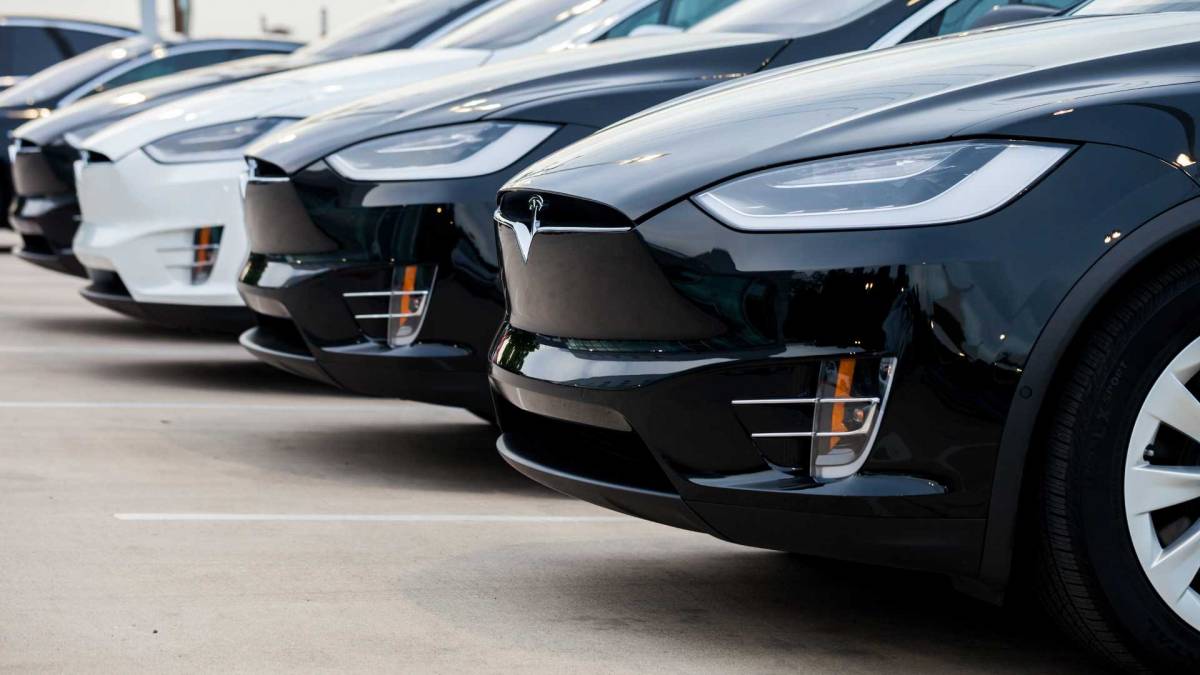They range from a low of $50 per year to a high of $200.
Electric-vehicle owners and car dealers alike received a major shock to the system recently when the Illinois state legislature proposed levying a $1,000 annual registration fee on all EVs. It had previously been an additional $17.50 on top of the standard charge.
The idea was to make up revenue that’s otherwise lost because electric car owners avoid paying the state tax on gasoline. Already Illinois and other states are feeling the pinch at the pump with new cars becoming more fuel-efficient and gas-tax increases not being politically popular. The gas tax is a primary source of funds used to pay for road improvements, and Illinois had not raised its per-gallon rate since 1990.
Predictably, opponents were both vocal and vicious over a nearly 60-fold increase in registration charges that would become a major disincentive to EV sales. They included startup company Rivian, which is about to begin manufacturing the first in a new line of EVs at a former Mitsubishi plant in Normal, Ill.
As it turned out, cooler heads prevailed and the so-called “EV tax” was reduced to a more sensible $100 on top of the also-increased annual $158 registration fee for all cars. Fuel-frugal hybrid and plug-in hybrid vehicles are excluded from the added fee. Still, EV owners in Illinois stand to come out ahead on the deal, as Illinois lawmakers also doubled the gas tax to $0.38 a gallon. That means the owner of a vehicle that gets 24 mpg and drives 15,000 annual miles will wind up paying around $237 per year in gas-taxes.
Making Up For Lost Revenue
Illinois now joins 17 other states that charge extra annual fees to EV owners. Perhaps ironically, these include states like California and Colorado that otherwise grant EV buyers substantial financial incentives to help spur sales for the sake of reducing tailpipe emissions. Curiously, it also includes a number of states in which few EVs are sold in the first place.
Could there be a better way to recover lost gas tax revenue that might not dissuade motorists from going electric? One alternative might be to assess higher registration fees based upon a vehicle’s curb weight. Heavier vehicles – especially heavy-duty pickups, buses, commercial vehicles, and big-rig trucks – tend to cause more damage to roads and bridges than do lighter modes of transport. Given the lobbying power of the businesses that would be affected, however, we wouldn’t bet on that happening anytime soon.
Another idea some states have been considering is to assess a “use tax” that’s based upon the number of miles a vehicle is driven. One way to determine that would be via data collected by a small transponder that plugs into a car’s diagnostic (OBD II) port. This would be similar to those used by auto insurance companies to reward motorists who drive for only short distances and maintain mannerly driving habits. Privacy and fairness issues (rural drivers who drive more miles than their urban counterparts, though at more fuel-efficient higher speeds, would essentially be penalized) have largely prevented such programs from being implemented.
State-By-State Fees
Here's a rundown of the states that currently charge electric-vehicle owners added fees, according to the National Conference of State Legislatures:
California: $100 annual fee for a zero-emissions vehicle. Starting in January 2021, annual increases will be indexed to the consumer price index.
Colorado: $50 annual fee for full-electric and plug-in hybrid (PHEV) vehicles.
Georgia: $200 annual license fee for “noncommercial alternative fueled vehicles,” including EVs, but not PHEVs (unless the owner requests an alt-fuel license plate). The fee is automatically adjusted on an annual basis.
Idaho: $140 annual fee for EVs; it’s $75 for PHEVs.
Illinois: $100 annual fee for EVs beginning July 1, 2019.
Indiana: $150 annual fee for EVs; it’s $50 for hybrids and PHEVs.
Michigan: $135 annual fee for non-hybrid electric vehicles weighing less than 8,000 pounds; it’s $235 for those weighing more than 8,000 pounds. The state charges hybrid owners an extra $47.50 and PHEV drivers an added $117.50. These fees are indexed to the state gas tax and would rise incrementally if it is increased.
Minnesota: $75 annual fee on EVs.
Mississippi: $150 fee on EVs and a $75 fee on hybrids. Beginning July 1, 2021, these fees will be indexed to the inflation rate.
Missouri: $75 annual fee on EVs, and $37.50 on PHEVs.
Nebraska: $75 annual fee on alternative-fuel vehicles, including EVs.
North Carolina: $130 on plug-in vehicles, including EVs.
Oregon: $110 annual fee on PHEVs beginning on January 1, 2020.
South Carolina: $120 biennial fee for EVs; it’s a $60 biennial fee for hybrids.
Tennessee: $100 annual fee for EVs.
Utah: $60 annual fee for EVs; it increases to $90 in 2020 and $120 in 2021. Hybrids are assessed a $10 fee that rises to $15 in 2020 and $20 in 2021. It’s currently a $26 annual fee for PHEVs that jumps to $39 in 2020 and $52 in 2021. In 2022 increases will be indexed to the consumer price index.
Virginia: $64 annual license for EVs.
Washington: $150 annual fee for EVs.
Wisconsin: $100 annual fee for EVs.


